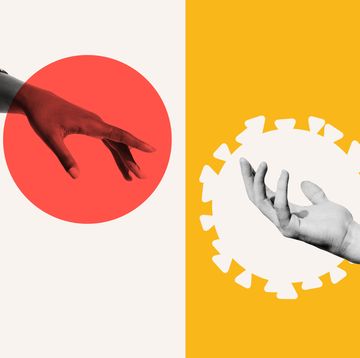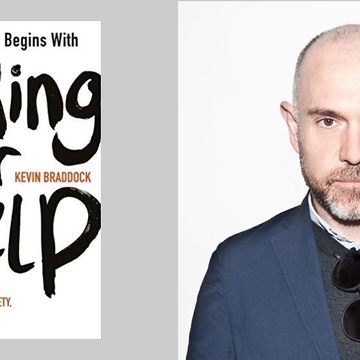When I was a kid all I wanted to do was play football or tennis. Then one day when I was 10 or 11 it was raining outside, so me and my friends went to our school table tennis club instead. I loved it right away.
I joined our local team and started practising four nights a week, and ended up playing for England in the junior teams. I remember telling Mum: I want to do this full-time; I don’t want to go to school anymore. But she told me I had to finish my GCSEs first, so I did.
The first time I realised I might actually be quite good was when I was 17 and got selected to play at the Commonwealth Games in Delhi. We got to the final and I walked away with two medals. Standing on the podium was my proudest moment. It was on the BBC and all that, and it propelled me to - well, I wouldn’t say stardom; this is table tennis we’re talking about here - but people began to take notice.
Around that time I got an offer from a really good club in Germany. I was scared and my Mum was a bit wary, but off I went on my own. There was one coach in particular who’d brought me out there because he really believed in me.
A few years into my time at the club, he died suddenly. It was a big shock to everyone. It also affected me more deeply than I realised. This is when I began to suffer from what I’d later understand to be depression.
You know when it’s hard even to get up in the morning? I was like that. I didn’t want to do anything, least of all practise. I’m the most competitive guy you’ll ever meet, but suddenly I’d lost something inside. I didn’t want to be there anymore. I felt myself going further and further down a hole. I felt trapped in my own life, and totally alone.
It’s not like I didn’t have friends around. I just didn’t talk to them. I didn’t talk to anyone. I’ve always been pretty quiet and never really spoke about anything really, especially my feelings. I just tried to put a front on, to look, from the outside, like it was still me, when inside it wasn’t. Sometimes people can look like they’re happy while inside everything is going wrong.
In the end I finally spoke to my coaches. I told them I was having problems and I didn’t know why. I told them I didn’t know if the sport was still for me. That’s when they set up a call for me with a sports psychologist.
I didn’t know this woman at all and I’d been getting myself worked up about it, but as soon as I got on the phone, I just broke down. I said some things I’d be dying to say for a long time, and some things I didn’t even know myself until it was out there. It was a huge weight off my shoulders. She got me to speak with a psychiatrist in London, who prescribed me some medication and then slowly I began talking to my family and friends about how I was feeling.
Around the time all this was happening, I was trying to get ready for the Rio Olympics. The medication was helping and I managed to qualify, but I still wasn’t feeling right or like I was playing well.
In our last match we played China in the quarter-finals. China is the best team in the world at table tennis – it’s their national sport. I was nervous before the game but on the court, I did OK. I took the Olympic champion quite close and had him worried at one point. In the end we finished fifth, which for us was a good result. After it was over, I felt a sense of relief. I did OK in that match but I still had a lot of doubts in my head that I wanted to carry on.
Just before Rio I took the decision to leave Germany and move to Sweden to practise there and move in with my girlfriend. That, along with amazing support from my family, was the big turning point for me. I started to feel like I was in control again. I was in a new environment and starting to feel happy for the first time in ages.
What has the experience taught me? Well it’s definitely made me a stronger person. If I hadn’t asked for help, I don’t know where I’d be. My girlfriend has been so supportive, even though it wasn’t always easy for her. Now, three years later we’re still together and we’ve got a dog! I always wanted one but I wasn’t allowed one growing up. I thought to myself: you’re taking control of my life, you’re getting a dog. I come home now from practise and he’s the happiest animal in the world to see me. It does cheer you up.
Life for me now is the best it’s ever been, both on the table and off it. I’m winning medals again and my world ranking is back up. I still speak to my sports psychologist – the one who helped me get better – regularly, but everything is pretty positive. I think, if you’re a man, there’s a sense you have to be strong and deal with things on your own, ‘man up’ and get on with it. But we’re all the same, really. Most people have mental health issues at some time or another. The more said about it, the better.
Liam Pitchford was talking to Sam Parker.
This month, Liam supported Samaritans Big Listen, which is encouraging everyone to be better listeners, which you can support here. Or, to make a donation and learn how to support the Samaritans in lots of other creative ways, visit samaritans.org.





